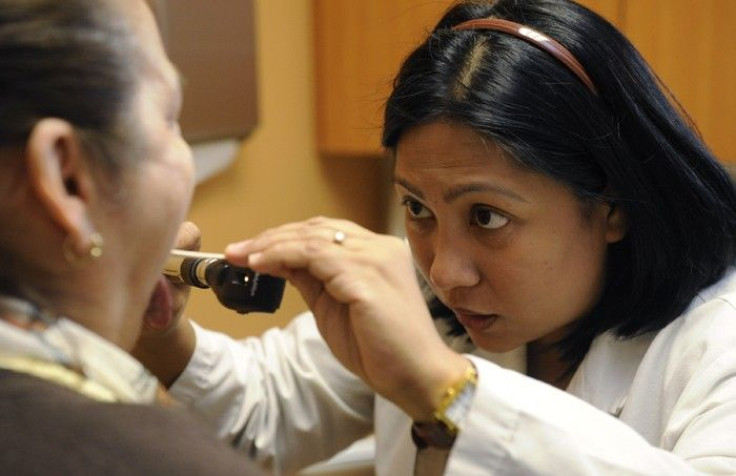Study: Medicaid Coverage Has Major Positives

Medicaid helps improve physical and financial stability for low-income Americans, according to a study released by the National Bureau of Economic Research.
The research shows that giving low-income people Medicaid makes them much more likely to receive health care than those uninsured and also much more likely to feel better about themselves.
The likelihood that the person surveyed said their health was good or excellent improved by 25 percent and conversely the percentage of those that said their health worsened decreased by 40 percent.
One of the biggest restraints for good health is that Americans think that because they do not have health insurance and at times can't afford expensive procedures, it isn't worth it to go to the doctor. But by giving them health insurance, the study saw that recipients were 35 percent more likely to see a doctor, 15 percent were more likely to take prescription drugs and 30 percent more likely to go to the hospital.
What we found in a nutshell is that having Medicaid makes a big difference in people's lives, said Amy Finkelstein, one of the main researchers involved in the study.
In the past, opponents of Medicaid have claimed that doctors and hospitals would rather prefer an uninsured patient paying cash than a Medicaid patient.
A Boston cabdriver told me the other day that she had to go through 20 doctors before she could find one who would see her, John Goodman, president of the National Center for Policy Analysis, told NPR. I said, 'Are you going down the Yellow Pages?' And she said, 'No, I was going down the list that Medicaid gave me.'
Stories such as these have led some Republican lawmakers to put pressure on states to cut Medicaid budgets, with Florida one of the most prominent opponents to the insurance.
But Dr. Kathleen Baicker, a professor at the Harvard School of Public Health and one of the primary conductors of this research, doesn't believe Goodman's example is the norm. Instead she suggests the research shows us that having Medicaid is much preferred to having no insurance.
Being uninsured is incredibly stressful from a financial perspective, a psychological perspective, a physical perspective, Baicker told The New York Times. It is a huge relief to people not to have to worry about it day in and day out.
Baicker and Finkelstein got the idea for the study after noticing that Oregon was facing a financial windfall and could not offer Medicaid to all of its residents. Instead the state had to hold a lottery for the health insurance and the research pair knew they had a great opportunity on their hands.
Amy and I stumbled across the lottery in Oregon and thought, 'This is an unbelievable opportunity to actually find out once and for all what expanding public health insurance does,' Baicker said.
For the first time in years, both supporters and opponents of Medicaid have substantial evidence to show exactly some of the things Medicaid is capable of doing.
But this is just the first step for Baicker and Finkelstein in their journey to show Medicaid's benefits. The pair, along with other researchers, plans to interview close to 12,000 patients to get an even more definitive picture on the debate of health care insurance.
© Copyright IBTimes 2024. All rights reserved.











